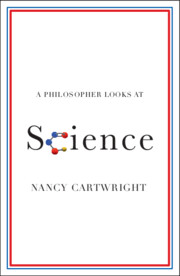
-
Select format
-
- Publisher:
- Cambridge University Press
- Publication date:
- 10 June 2022
- 30 June 2022
- ISBN:
- 9781009201896
- 9781009201889
- Dimensions:
- Weight & Pages:
- Dimensions:
- (198 x 129 mm)
- Weight & Pages:
- 0.29kg, 222 Pages
You may already have access via personal or institutional login
Book description
What is science and what can it do? Nancy Cartwright here takes issue with three common images of science: that it amounts to the combination of theory and experiment; that all science is basically reducible to physics; and that science and the natural world which it pictures are deterministic. The author's innovative and thoughtful book draws on examples from the physical, life, and social sciences alike, and focuses on all the products of science – not just experiments or theories – and how they work together. She reveals just what it is that makes science ultimately reliable, and how this reliability is nevertheless still compatible with a view of nature as more responsive to human change than we might think. Her book is a call for greater intellectual humility by and within scientific institutions. It will have strong appeal to anyone who thinks about science and how it is practised in society.
Reviews
‘When the philosopher Nancy Cartwright looks at science … she challenges the image of scientists who simply produce bold theories and put these to experimental tests. She sees a rich and complex network of activities and methods; together they help us to develop the concepts in which our theories are formulated, build models and forge narratives with which to understand the world, and create the phenomena required to put these theories to work and to the test.’
Source: Times Literary Supplement
Contents
Metrics
Altmetric attention score
Full text views
Full text views help Loading metrics...
Loading metrics...
* Views captured on Cambridge Core between #date#. This data will be updated every 24 hours.
Usage data cannot currently be displayed.
Accessibility standard: Unknown
Why this information is here
This section outlines the accessibility features of this content - including support for screen readers, full keyboard navigation and high-contrast display options. This may not be relevant for you.
Accessibility Information
Accessibility compliance for the PDF of this book is currently unknown and may be updated in the future.


